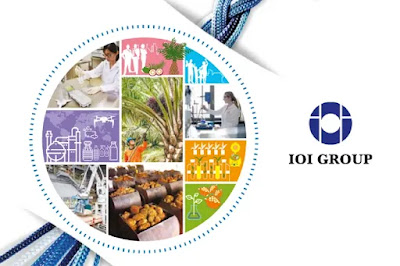IF a company’s shares are considered a form of currency, many small cap companies have been minting money via a series of private placements of new shares over the past 18 months.
A random check on penny stocks shows that the share capital of many of these companies have increased manifold. Among them are AT Systematization Bhd, Vsolar Group Bhd, Oversea Enterprise Bhd, Green Ocean Corp Bhd and Fintec Global Bhd.
The share issuance spree started to gain momentum after Bursa Malaysia relaxed the rules on private placement last April at the peak of the first wave of the Covid-19 pandemic.
The stock exchange raised the private placement general mandate to 20% of a company’s issued share capital, from 10% previously. The threshold is lower than other bourses, including those of Hong Kong and Singapore.
On top of that, companies are permitted to issue up to 30% of their existing share capital in a share placement if the shareholders approve the exercise at an extraordinary general meeting.
The regulators said the relaxation of the rule — until year-end — is an interim measure to help public-listed companies that urgently need to raise fresh capital to sustain their operations during these trying times.
Many small cap companies have opted for the interim measure to raise fresh cash for working capital and future investments or for new business ventures, for instance, production of rubber gloves or distribution of vaccines and Covid-19 test kits.
Fresh capital raised from secondary issuance soared by 76% to RM8 billion in 2020, according to the Securities Commission — evidence of interest in share placements and rights issues.
Coincidentally, most of these companies have a rather similar pattern of fundraising exercises, consisting of a share placement, followed by a cash call and share issuance schemes to reward employees, especially the board of directors.
It is also worth noting that the share prices of such small cap companies usually shoot up soon after these fundraising exercises, despite their dismal earnings performance. Below are some of the companies which have seen a significant increase in their share capital.
AT Systematization
Topping the list is ATS, one of the companies that have ventured into rubber glove manufacturing. Its total outstanding shares swelled by 811% to 4.23 billion shares between Jan 1, 2020, and March 15, 2021, according to Bloomberg data.
ATS, in which Fintec Global holds a 9.9% stake, carried out two private placements during the year. The first was proposed in August and the second in November. It issued a total of 1.34 billion shares to raise about RM159.5 million.
The first placement was priced at 6.3 sen to 7.16 sen. Its share price ranged between seven sen and 10 sen in October 2020, when it completed the placement.
The second placement was issued in December at between 15.95 sen and 18 sen — more than 50% higher than the previous one, thanks to the hike in ATS’s share price over the two months.
The first placement was to finance its diversification into the manufacturing and sale of rubber gloves and related machinery, which was in line with its proposed acquisition of industrial glove maker Pearl Glove (Malaysia) Sdn Bhd.
The acquisition was cancelled in November, however, with the group citing the non-fulfilment of certain conditions, without elaborating on them. In January 2021, ATS sued the shareholders of Pearl Glove for RM4.4 million, as it was not satisfied with the result of the exercise.
The second placement was to raise funds for capex for the glove business as well as working capital purposes, as the company was setting up its rubber glove plant in Perak.
Besides share placements, ATS had also undertaken a rights issue of 991.2 million shares to raise RM34.7 million. The proceeds were earmarked for the expansion of its production capacity, repayment of bank borrowings and working capital.
On top of that, ATS has rewarded its employees with share issuance schemes. As at March 10, eligible staff had exercised options amounting to 1.45 billion shares.
Vsolar Group
Vsolar Group Bhd, another company linked to Fintec Global, saw its share capital swell 587% to 2.82 billion shares as at March 15, following two private placements, a rights issue and several share issuance schemes to its employees between July 2020 and January this year.
The first placement was announced on Nov 11, and the second was announced about a month later on Dec 16, both for working capital for its solar photovoltaic solutions operations. It raised a total of RM16.5 million.
The issue price for the first placement was fixed at 3.42 sen on Jan 6, 2021, and for the second, at 3.78 sen per share on Nov 11, 2020, when its share price was trading around four sen.
Earlier in the year, the group had raised RM36 million via a rights issue that was completed on July 13. This was to raise capex funds for the development and construction of biomass or biogas plants.
Furthermore, the company has so far granted 901.8 million shares under the share issuance schemes, equivalent to approximately 30% of its share capital.
Green Ocean Corp
Like ATS, Green Ocean Corp is also raising fresh capital for its rubber glove venture. Its current core business is the trading of palm oil products.
In 2020, the company started its fundraising activities with a private placement of 28.97 million shares, equivalent to 10% of its share capital in late July. The new shares were priced at 18.5 sen apiece and raised RM5.36 million.
Meanwhile, the hardly traded stock shot up from nine sen on July 22 to 32.2 sen on Aug 10 — the highest level since April 2006. However, it lost ground soon after and closed at 6.5 sen last Friday.
The downtrend did not hinder Green Ocean’s second fundraising exercise in less than two months. In September, it announced a share placement of 95.6 million shares (30% of its share capital) plus a four-for-two rights issue that came with three detachable warrants. On top of that, Green Ocean wanted to grant an employees’ share options scheme (ESOS), involving up to 30% of its total number of issued shares, for eligible directors and employees.
The rights issue of 828.5 million shares was priced at 10 sen and oversubscribed. Subsequently, Green Ocean’s share capital was enlarged to 1.242 billion shares in January 2021, compared with 289.7 million shares a year ago.
Still, the company is expected to issue more shares if its senior officers decide to exercise their ESOS. According to filings with Bursa Malaysia, Green Ocean has granted ESOS to executive director Mak Siew Wei, chairman Datuk Nik Ismail Nik Yusoff, and two independent and non-executive directors Roy Winston George and Khoo Chee Siang.
Mak, who bought into Green Ocean last July with an equity interest of 17.07%, has ceased to be a substantial shareholder as a result of the cash call.
Since Jan 4, the company has granted 963.7 million to the four senior executives in the price range of 5.75 sen to 7.5 sen, which is less than the rights issue price.
Fintec Global
Fintec Global Bhd’s issued share capital more than quadrupled to 3.37 billion shares as at March 15, 2021, from 745.56 million as at January 2020.
The group, which is involved in various business sectors by virtue of its equity stake in ATS, Vsolar, Focus Dynamics Group Bhd, DGB Asia Bhd and MLabs Systems Bhd, completed two private placements in 2020.
The first exercise was proposed on April 23, and saw the placement of 82.11 million shares, raising a total of RM2.96 million for working capital purposes.
A month later, it announced another private placement of 282.14 million shares, fixed at an issue price of 5.35 sen for the first tranche of 100 million shares and 7.1 sen for the second tranche comprising 182.14 million shares.
A total of RM18.3 million was raised, earmarked for “investment in healthcare equipment manufacturing and/or trading business” as well as working capital purposes.
On Sept 4, 2020, the group proposed a diversification of its business and subsidiaries to include the manufacturing and sale of rubber gloves, as it hoped to capitalise on the high demand amid the Covid-19 pandemic.
To fund its venture into the glove business, Fintec proposed to undertake a renounceable rights issue of up to two billion new shares, which was subsequently fixed at eight sen per rights share.
The group rewarded its employees with a share issuance scheme, granting roughly 697 million shares to eligible employees. The amount is equivalent to 20% of its current issued share capital.
Key Alliance Group
Key Alliance Group Bhd also followed the same path — a share placement, rights issue and share issuance scheme for eligible employees — last year.
Its issued share capital increased 352% to 2.35 billion shares, following two share placements and a rights issue last year.
It undertook two private placements, which saw some 262.1 million new shares being issued.
The first was completed in April 2020, with a total of 57.8 million shares issued at 1.35 sen apiece, raising RM780,705 in proceeds earmarked for the repayment of bank borrowings and working capital purposes.
Three months later, it completed a second private placement for the year, issuing a total of 204.2 million shares at six sen each.
It raised a total of RM12.25 million from the exercise, which was primarily for the expansion of its cloud services, data centre and IT business. A portion of the proceeds went to the building of an internet exchange point at its existing data centre in Menara Lien Hoe.
Last August, the company continued its share issue spree. This time round, it made a cash call to issue up to 982.21 million new shares, raising a total of RM49.1 million to fund its diversification into the marketing, distribution and trading of medical equipment, devices and related products.
Still, the two share placements plus a rights issue failed to meet its capitalisation requirements.
In January this year, Key Alliance proposed another private placement of up to 609.45 million shares, equivalent to 30% of its enlarged share capital, to raise funds for the development of an e-commerce platform for medical equipment, devices and related products.
Similarly, eligible employees were rewarded with a share issuance scheme, receiving a total of 889.5 million shares between February 2020 and January 2021.







